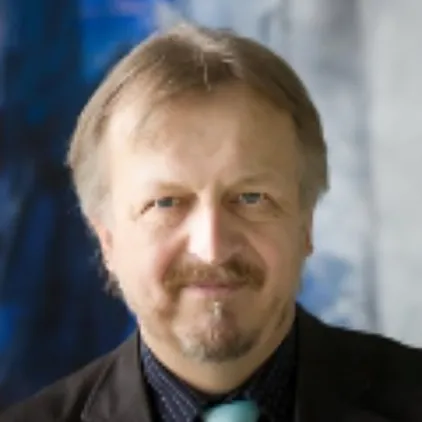

Prof. Dr.-Ing. Werner Henkel
Email: werner.henkel@ieee.org
Physical-layer security, source and channel coding, multi-carrier modulation, DSL, power-line communications, DNA analysis, ...
Current research activities have a focus on impulse noise treatment (cancellation, coding) for wireless and wireline channels, LDPC codes, neural networks, DNA analysis, joint source-channel coding, LDPC-integrated equalization, and physical-layer security for wireless and wireline channels.
Full list here, selected ones below:
- O. Torshizi and W. Henkel, "Exploiting FDD Channel Reciprocity for Physical Layer Secret Key Generation in IoT Networks," in IEEE Communications Letters, doi: 10.1109/LCOMM.2024.3388160
- W. Henkel, O. A. Graur, N. S. Islam, U. Pagel, N. Manak and O. Can, "Reciprocity for Physical Layer Security with Wireless FDD and in Wireline Communications," 2018 IEEE Globecom Workshops (GC Wkshps), Abu Dhabi, United Arab Emirates, 2018, pp. 1-6, doi: 10.1109/GLOCOMW.2018.8644261.
- O. Torshizi and W. Henkel, "Reciprocity and Secret Key Generation for FDD Systems using Non-Linear Quantization," 2022 IEEE Globecom Workshops (GC Wkshps), Rio de Janeiro, Brazil, 2022, pp. 927-932, doi: 10.1109/GCWkshps56602.2022.10008695.
- E. O. Torshizi, U. Uprety and W. Henkel, "Highly Efficient FDD Secret Key Generation using ESPRIT and Jump Removal on Phase Differences," 2022 IEEE Conference on Communications and Network Security (CNS), Austin, TX, USA, 2022, pp. 1-6, doi: 10.1109/CNS56114.2022.9947224.
- E. O. Torshizi and W. Henkel, "Error Probability of FDD-based Secret Key Generation using Multiple Linear Regression," 2023 31st European Signal Processing Conference (EUSIPCO), Helsinki, Finland, 2023, pp. 630-634, doi: 10.23919/EUSIPCO58844.2023.10289828.
- W. Henkel and T. Kessler, "Maximizing the channel capacity of multicarrier transmission by suitable adaptation of the time-domain equalizer," in IEEE Transactions on Communications, vol. 48, no. 12, pp. 2000-2004, Dec. 2000, doi: 10.1109/26.891210.
- I. Mann, S. McLaughlin, W. Henkel, R. Kirkby and T. Kessler, "Impulse generation with appropriate amplitude, length, inter-arrival, and spectral characteristics," in IEEE Journal on Selected Areas in Communications, vol. 20, no. 5, pp. 901-912, June 2002, doi: 10.1109/JSAC.2002.1007373.
- W. Henkel, A. Wakeel and M. Taseska, "Peak-to-average ratio reduction with Tone Reservation in multi-user and MIMO OFDM," 2012 1st IEEE International Conference on Communications in China (ICCC), Beijing, China, 2012, pp. 372-376, doi: 10.1109/ICCChina.2012.6356910.
- W. Henkel and B. Wagner, "Another application for trellis shaping: PAR reduction for DMT (OFDM)," in IEEE Transactions on Communications, vol. 48, no. 9, pp. 1471-1476, Sept. 2000, doi: 10.1109/26.870014.
- F. Hu and W. Henkel, "An Analysis of the Sum-Product Decoding of Analog Compound Codes," 2007 IEEE International Symposium on Information Theory, Nice, France, 2007, pp. 1886-1890, doi: 10.1109/ISIT.2007.4557496.
- J. Etesami, F. Hu and W. Henkel, "LCD Codes and Iterative Decoding by Projections, a First Step Towards an Intuitive Description of Iterative Decoding," 2011 IEEE Global Telecommunications Conference - GLOBECOM 2011, Houston, TX, USA, 2011, pp. 1-4, doi: 10.1109/GLOCOM.2011.6133942.
Werner Henkel was born in Gelnhausen, Germany, in 1960. He received his Diploma and Dr.-Ing. (Ph.D.) degree from Darmstadt University of Technology (TUD) in May 1984 and June 1989, respectively. The PhD was on analog coding, currently also named deterministic compressive sensing.
Click here for Prof. Dr.-Ing. Werner Henkel's full CV.